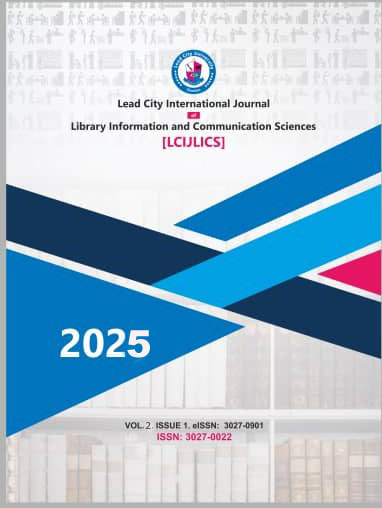INFLUENCE OF SELF-EFFICACY OF LIBRARY AND INFORMATION SCIENCE STUDENTS ON LEARNING OUTCOMES IN TERTIARY INSTITUTIONS AT OSUN STATE, NIGERIA
Keywords:
Learning Outcomes, Self-efficacy, LIS students, Tertiary Institutions, Osun StateAbstract
The learning outcomes of Library and Information Science (LIS) students in tertiary institutions
in Osun State serve as key indicators of educational quality and professional preparedness.
However, initial investigations reveal a decline in students’ practical competencies, particularly in
organizing information, leading to challenges in employability and professional performance. As
a result, some LIS graduates remain unemployed, while others struggle to manage Information
and Communication Libraries effectively. This deficiency has prompted some institutions to hire
non-professional digital librarians, potentially affecting the integrity of the LIS field. Despite
extensive research on learning outcomes and self-efficacy, there remains a gap in understanding
the specific impact of self-efficacy on LIS students' learning outcomes in Osun State. This study
employed a descriptive survey research design, targeting 3,500 LIS students across four
universities and three polytechnics in Osun State. A sample of 346 students was selected, and data
was collected using a structured questionnaire. Descriptive statistics were used to interpret the
results, including frequency distribution, percentage, and mean analysis. Findings indicate a
significant positive relationship between self-efficacy and learning outcomes. Additionally,
students’ ability to initiate, select, and formulate information during the search process
significantly influenced their academic performance. The study recommends that LIS students
enhance their self-efficacy to improve their professional competence and employability. Lecturers
and policymakers should prioritise strategies that foster self-efficacy, while curriculum revisions
should emphasise practical training. Employers should also recognise the potential of LIS
graduates to mitigate biases affecting hiring practices. These efforts will collectively improve
learning outcomes and the professional standing of LIS graduates.

